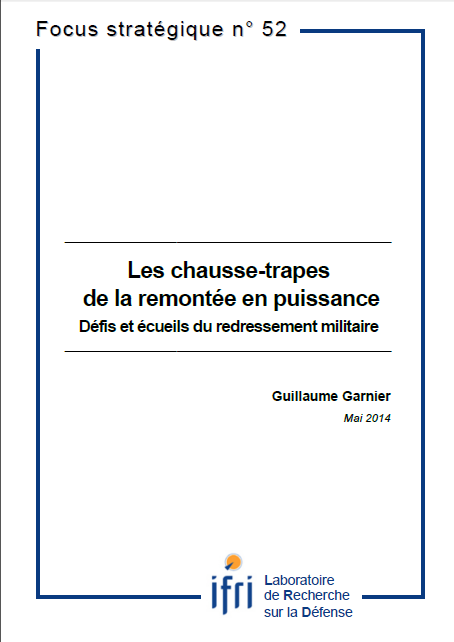Les chausse-trapes de la remontée en puissance : Défis et écueils du redressement militaire

A process of military resurgence shows a government’s will to strengthen its defense apparatus, either to face new strategic challenges or, more frequently, to reverse decline of its capabilities.
The ongoing budgetary crisis, which keeps harming many countries, causes an accelerated weakening of European armed forces. Thus, the question of military resurgence is urgent, at least for those countries that deem necessary maintaining a credible defense tool. Military resurgence is everything but simple. The sharper the drop in capabilities, the more difficult, costly and long the resurgence will be. A swift consolidation may be enough to patch up an apparatus that suffers from minor shortcomings. Should these multiply up to the point of endangering the coherence of the system, a much more substantial build-up would be needed. Ultimately, only a massive, enduring and global effort of reconstruction could efficiently deal with the actual collapse of armed forces. Consequently, this paper highlights the critical importance of threshold effects when considering the development and sustainment of such an effort, effects which must be taken into account before any crippling decision is taken. More specifically, loss of either military or industrial skills has to be carefully thought on and controlled, otherwise the resurgence will fail, however ample the funding may be.
This content is available in French: Les chausse-trapes de la remontée en puissance : Défis et écueils du redressement militaire
Related centers and programs
Discover our other research centers and programsFind out more
Discover all our analysesThe Franco-German Brigade and the Revival of European Defense
One thing has been clear since Donald Trump's return to the White House: the very existence of the European unification project is threatened. Unless it develops a sovereign defense policy to counter the war in Ukraine and the weakening of American security guarantees, the European Union will continue to see its internal cohesion and external attractiveness wane.
Taking the Pulse: Can Europeans Build Their Independent Extended Nuclear Deterrent?
Confronted with a U.S. disengagement and the Russian threat, Europeans are reconsidering their stance on nuclear deterrence. Given the capabilities of the French and British arsenals, can Europe develop an independent nuclear deterrent?

RAMSES 2024. A World to Be Remade
For its 42nd edition, RAMSES 2024 identifies three major challenges for 2024.
A Transatlantic Defense Industrial Base? Two Contrasting Views
The evolving landscape of global defense cooperation has brought the transatlantic relationship between the United States (US) and Europe into sharp focus. As geopolitical tensions rise and the threat environment becomes more complex, the question of how Europe can best ensure its security while navigating its relationship with the United States has become paramount. This double feature report offers two contrasting views on the dynamics of US-Europe defense industrial relations, highlighting the challenges and opportunities that lie ahead for both parties.








